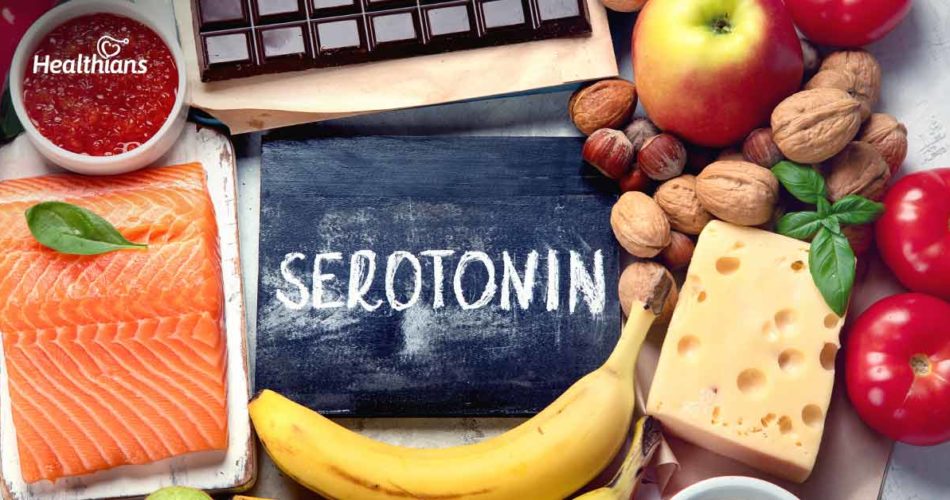Introduction
Serotonin is a mood-enhancing chemical in the brain that plays a complex and multifaceted role throughout the body.
Research suggests that it helps relay signals from one area of the brain to another. It is often called a natural “feel good” chemical because it contributes to feelings of well-being and happiness.
It’s also known for:
- Promoting positive sleeping patterns
- Regulating appetite
- Enhancing learning
- Modulating mood
- Promoting positive feelings
- Sexual functioning
- Blood clotting
Why is Serotonin Important?
Unbalanced serotonin levels can have wide-ranging effects on your mental and physical health. If the levels of serotonin in your body are low or inadequate enough to work as they should, you may feel:
- Anxious, low, or depressed
- Unusually irritable or aggressive for no apparent reason
- Fatigued
- Impulsive
- Sad, hopeless, or angry
Fortunately, there are ways to naturally boost serotonin levels in the body. Read on to learn about different ways to increase serotonin—but without the side effects, of course.
What foods can naturally boost serotonin?
There’s still hope if you’re suffering from a serotonin deficiency. Several lines of research suggest that eating some of the foods listed below can enhance the flow of serotonin in the human brain.
Many of these meals are effective because they contain tryptophan, an amino acid that helps the body produce serotonin.
These foods are not only delicious, but they can also make you feel better! Here are several seven foods that can help you feel happier by increasing the happiness hormones in the body.
Find out what fits best into your daily diet from the list below to create a feeling of overall well-being.
Fatty fish
Fatty fish such as tuna, salmon etc. can influence serotonin levels as they are high in tryptophan, an amino acid important for synthesizing serotonin.
They are packed with high levels of omega-3 fatty acids, which are good for the skin, heart, and bones, in addition to helping to raise serotonin levels.
Salmon also provides Vitamin D, which is necessary for strong bones and the generation of serotonin.
Nuts and seeds
Nuts like cashews, almonds, hazelnuts and walnuts have the highest concentration of serotonin and are natural sources of tryptophan and protein.
Eating a handful of nuts a day can not only keep you feeling full for longer but also make you feel happier and healthier.
Chocolate
Chocolate, especially dark, seems to melt away your sorrows. This is because it helps in stimulating serotonin synthesis in the brain.
Chocolate contains tryptophan and phenylethylamine in small quantities, which is why you feel happier, calmer, or less anxious after eating a piece of chocolate cake.
Eggs
Whole eggs not only offer macronutrients and micronutrients that support your health overall health but they are also packed with antioxidants needed for a healthy stress response.
Plus they are also tyrosine-rich. Whole eggs are Include boiled eggs in your breakfast to boost your mood.
Tofu and soy
Tofu is a soy product that is high in tryptophan. Eating tofu is a good option for vegans and vegetarians to receive tryptophan without eating meat, and may help boost low serotonin levels.
Milk and cheese
Dairy products not only have incredible health benefits but are great sources of tryptophan.
Cheese has a higher content of tryptophan than most meat sources.
Pineapple
The queen of fruits contains plenty of tryptophan to boost serotonin in the brain.
This makes pineapple a natural mood enhancer. Eating pineapple regularly could make your body and brain feel good and also positively influence food cravings and anxiety.
Final thoughts
Research indicates that healthy serotonin levels can make a big difference in your day-to-day life. There are several foods that can either exponentially increase serotonin in our body.
Integrating these into your everyday diet can help you achieve balance with your mood and overall well-being.
Besides adding these serotonin-boosting foods to your diet, you must also opt for preventive diagnostic tests to identify any potential complications and take measures to protect your overall well-being.




